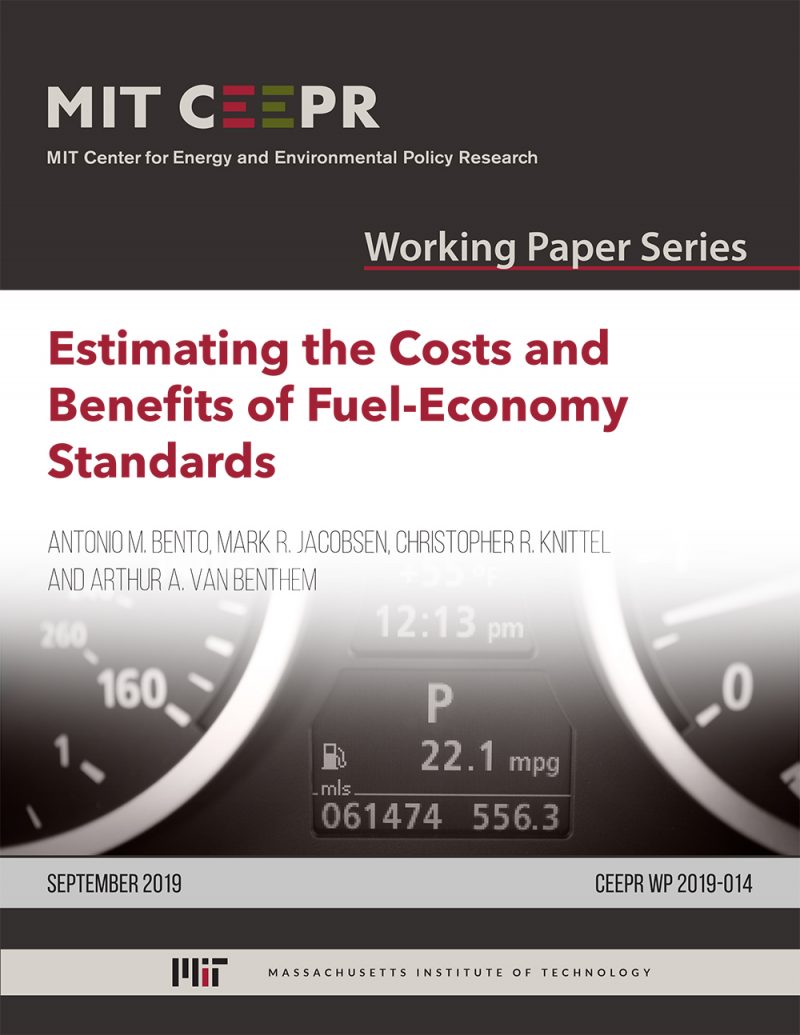Estimating the Costs and Benefits of Fuel-Economy Standards
Antonio M. Bento, Mark R. Jacobsen, Christopher R. Knittel, and Arthur A. van Benthem
September 2019
Fuel-economy standards for new vehicles are a primary policy instrument in many countries to reduce the carbon footprint of the transportation sector. These standards have many channels of costs and benefit, impacting sales, composition, vehicle attributes, miles traveled and externalities in the new-car fleet, as well as the composition and size of the used fleet. We develop a tractable analytical framework to examine the welfare effects of fuel-economy standards, and apply it to the recent government proposal to roll back fuel-economy standards. We find that the rollback proposal suffers from inconsistencies due to a piecemeal equilibrium analysis; central parts of the model used to analyze the proposal do not feed back into others. We stress the importance of instead using a combined, multi-market vehicle choice model to avoid such inconsistencies. We also derive bounds that can serve as a check on the theoretical consistency of such analyses, and that offer insights into the magnitudes of potential errors resulting from imperfect multi-market integration.
Keywords: vehicles; fuel-economy standard; benefit-cost analysis.
JEL codes: H23, L51, Q38, Q48, Q58.



